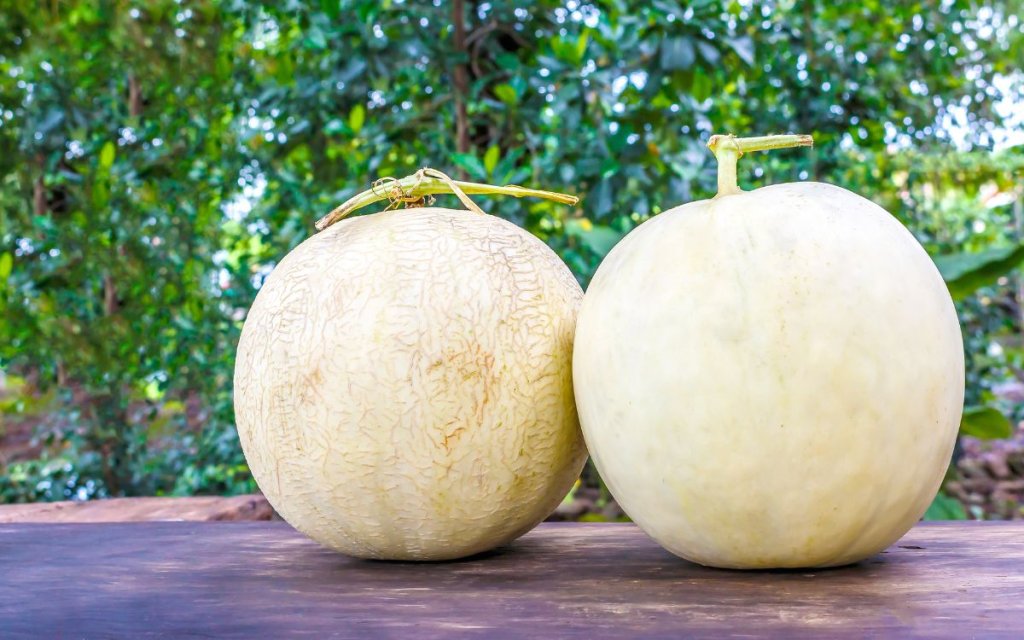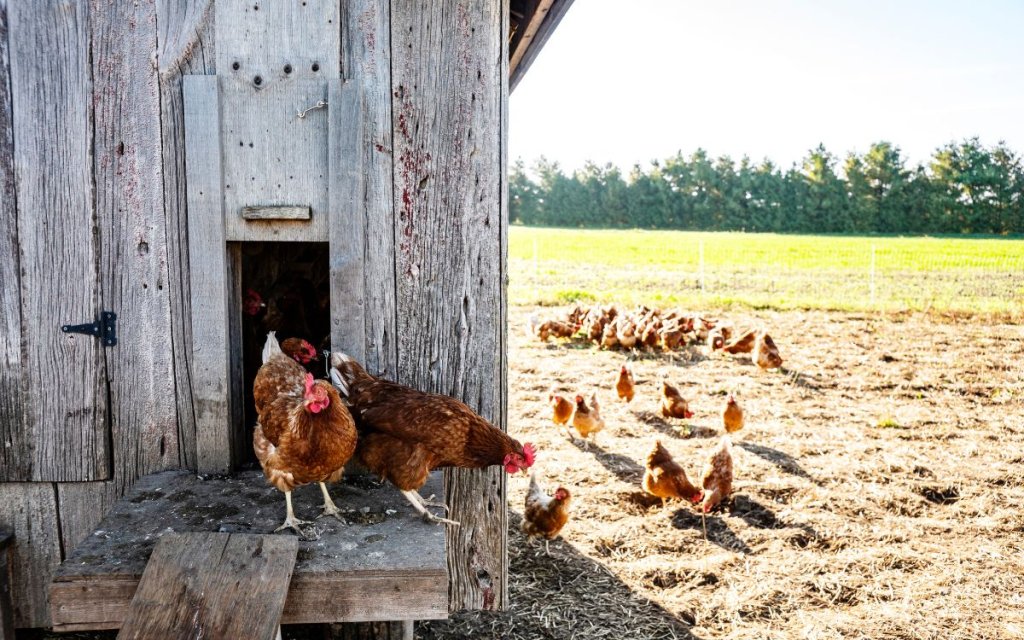Yes, chickens can eat cantaloupe safely. Not only the cantaloupe flesh, but chickens love eating cantaloupe rinds and cantaloupe seeds as well. This variety of melon is pretty healthy when fed in moderation.
Like most fruits and vegetables, cantaloupe can be added to a chicken’s diet in limited quantities. This juicy fruit is power-packed with essential vitamins and minerals. Chickens love to eat cantaloupes and honeydew melons.
So, there is no harm if your chickens eat cantaloupe, but how much to feed them? Here is everything you need to know about feeding cantaloupe to your chicken flock.
Navigation
Is Cantaloupe Good for Chickens?
Poultry owners should feed chickens cantaloupe. This fruit is rich in dietary fiber and various vitamins and minerals that ensure a strong immune system, healthy feathers, and overall health and wellbeing.
This fruit is so delicious that most chickens will eat cantaloupes happily, even the fussy eaters.
Health Benefits
This melon is nutritionally dense and low in carbohydrates, fats, and calories. Here are the nutrients and their benefits:
- Rich in Vitamin A
Cantaloupes should be given regularly to chickens and not just as treats. This fruit is high in vitamin A, which helps in good vision and better chicken growth.
Vitamin A also eliminates issues in the digestive system, skin, respiratory tract, and eyesight. Chickens who lack vitamin A are more prone to diseases like conjunctivitis.
- Rich in Vitamin C
Cantaloupes contain various vitamins essential for chicken’s health, and one of them is vitamin C. This vitamin is good for collagen synthesis. It also ensures healthy bones and tissue development.
While most healthy chickens synthesize their own vitamin C, some birds cannot produce enough in natural form in hot climates or other stressful conditions. If you feed cantaloupe to your flocks, the extra dose of this vitamin will boost their immunity.
Vitamin C also helps fight diseases of the cardiovascular system like high blood pressure.
- Contains Beta Carotene
Beta carotene is a powerful antioxidant that boosts chickens’ overall health by ensuring healthy eggs, smooth functioning of internal organs, and increased egg production capacity.
Chicken keepers can benefit by making their chickens eat cantaloupe as this nutrient boosts the overall wellbeing and health of their chickens.
- Rich in Calcium
Around 100g of cantaloupe contains 9g of calcium. If you make your chickens eat cantaloupe regularly, they can benefit from sufficient quantities of this essential mineral. Calcium helps your chickens with the development of strong bones, better eggs, and healthy growth.
Chickens also need calcium for laying eggs and for the formation of strong eggshells. Chickens who have weak eggshells have a calcium deficiency.
- High in Potassium
If your chickens eat cantaloupe and honeydew melons regularly, they will never face a potassium deficiency. This nutrient optimizes the electrolyte balance in your chickens, thereby regulating the internal temperature.
This mineral also regulates the proper use of water in chickens’ body.
- Rich in Folate
Adding cantaloupes regularly to your chickens’ diet will ensure they get enough quantities of folate as well. This nutrient is crucial for blood formation and preventing anemia.
Chickens with folate deficiency have stunted growth.
- High in Antioxidants
Apart from beta carotene, cantaloupe also has various other antioxidants such as polyphenols and flavonoids. These are anti-inflammatory and help the chickens fight infections.
Antioxidants help fight free radical damage in the cells. Flavonoids and polyphenols help in building healthy body tissue and feathers in your chickens.
- Good Fiber Content
Cantaloupe helps in proper digestion as this fruit is rich in fiber. It promotes the development of a healthy digestive tract and rules out constipation.
- Good Water Content
Cantaloupes are high in water content. Cantaloupe flesh is mainly made up of water that boosts hydration in the birds.
As per veterinary advice, a cantaloupe is healthier than other fruits as it is high in water and fiber. Even though it contains a little excess sugar compared to various other fruits, it offers some crucial benefits that cannot be ignored.

How to Feed Cantaloupes to Chickens?
Chickens love to eat cantaloupe seeds, flesh, as well as the outer rinds. There are numerous ways to feed chickens this fruit:
- Hanging in their cage
Although the rinds are hard, if you hang a whole cantaloupe in a chicken coop, they will peck at the rind and eat the flesh from inside. This will also encourage your chickens into some activity.
- Making a Seed Mix
You can also mix cantaloupe seeds with black oil sunflower seeds, flax seeds, and other green leafy veggies to make a superfood blend for your flocks.
Give your chickens to eat this seed mix once or twice a week, alternating it with other treats. Just ensure you do not add apple seeds to this mix as they contain harmful toxins.
- Wash the Cantaloupe Well
The outer rind of the fruit is quite hard. If your chicken eats the flesh by pecking at the rind, ensure that the outer hard rind is free from harmful chemicals and pesticides, else it will trigger unwanted chemical reactions in your chickens.
Cantaloupes are easily one of the favorite fruits of chickens and these make a great treat as they help in getting rid of various health problems.

Final Words
Chickens can eat this melon pretty safely. The flesh, seeds, and outer rind are all quite nutritional for your flocks. You can feed them whole seeds of this fruit along with other food items to make a superfood blend.
Having said so, ensure chickens eat cantaloupes in moderation, just like fruits and other treats as they do not contain sufficient proteins and carbs required for their optimum growth.
Chickens will eat most fruits happily, and you can feed them various fruits in addition to other commercial feed to ensure they get a balanced diet.







